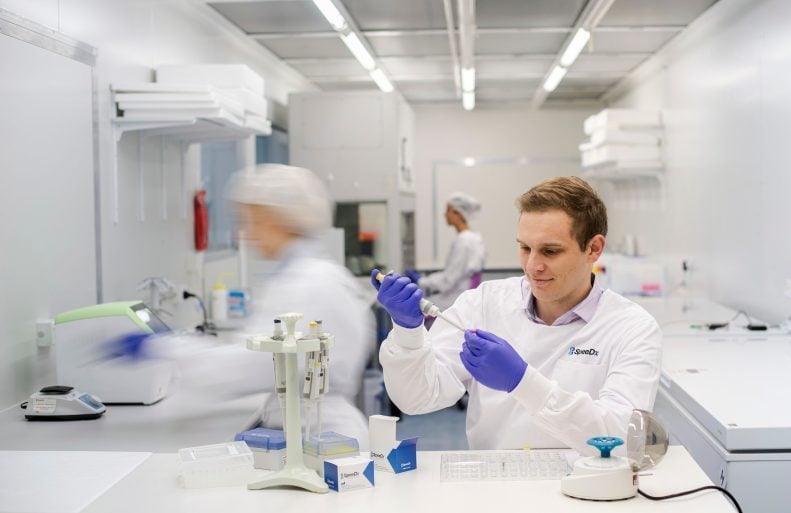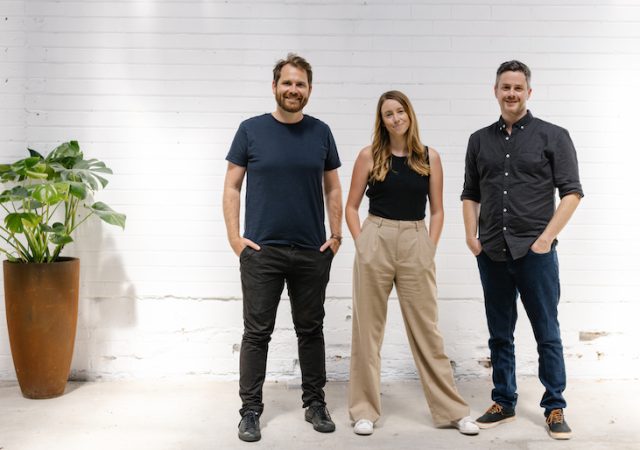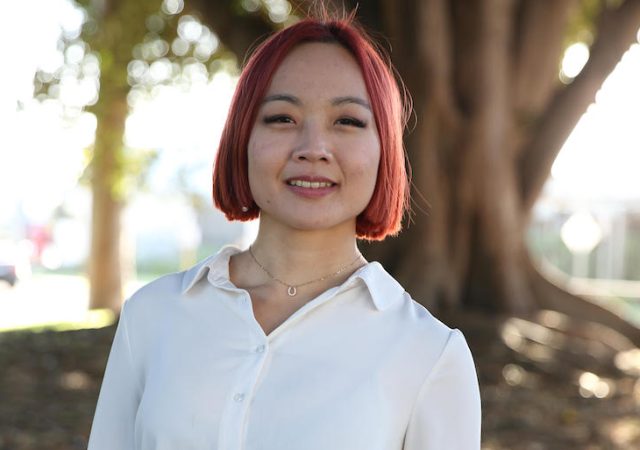This year marks the 20th anniversary of Australia’s first ever incubator, Cicada Innovations.
To date, Cicada Innovations has incubated more than 100 startups, and helped more than 300 companies raise in excess of $450 million in venture capital and government grants, create hundreds of jobs, build local manufacturing capability, file more than 500 patents and trademarks, and launch more than 700 deep tech innovations globally (more information here).
In celebration of 20 years of fostering Australian innovation, Startup Daily is running a 5-part series by CEO Sally-Ann Williams highlighting some of the companies produced by the incubator.
Inappropriate antibiotic use has made treatments for certain infectious diseases far less effective in recent years, and in the process has created a whole host of terrifying “superbugs”.
Enter biotech startup, SpeeDx, who is here to help solve this problem.
When they founded SpeeDx in 2009 and took up residence at the Cicada Innovations incubator, co-founders Alison Todd (an alumna of USYD) and Elisa Mokany (UNSW) described themselves as “accidental entrepreneurs”.
Prior to their entrance into the world of entrepreneurship, they had been working at the now defunct Johnson & Johnson Research (JJR) lab in Sydney on an enzyme technology that would simplify quantitative polymerase chain reaction (qPCR), a common process in applied and research fields of molecular biology.
Forming SpeeDx allowed them to continue their work after JJR’s closure, allowing these reluctant entrepreneurs to draw on Cicada Innovations for advice on business strategy, regulations, and grant applications.
SpeeDx’s diagnostic test uses their patented enzyme technology to design human diagnostic tests for detection of infectious pathogens and any genetic mutations linked to antibiotic resistance. This helps clinicians determine resistance or susceptibility of the infection and so identify the most effective treatment.
SpeeDx’s technology has been widely deployed in helping select the best and most effective treatment for individual cases of a range of sexually transmitted diseases that affect about one in 35 people worldwide. But it also has broader applications in guiding case-specific treatments for other infectious diseases and also in oncology.
As one example, SpeeDx was able to quickly develop a COVID-19 pathogen detection test, exemplifying how established deep tech companies are able to respond to emerging global priorities. They are also commercialising a unique host-response biomarker test that can be used for risk-based stratification of patients presenting with respiratory viral illness, including COVID-19. As we start looking to recover from COVID-19, these are the stories we need to look to for inspiration and hope.
And testament to the success of its work, SpeeDx now has a staff of 92 and offices in Australia, the UK, and US. It has secured more than $5 million in state and federal government grants and US$30 million in venture capital from US-based Northpond Ventures.
Its technology is used to fight rapidly evolving superbugs, to identify flu viruses, and to detect genetic mutations in cancer cells — deep tech developments that will have a significant impact on human health and wellbeing.
Basically, it’s one of those companies you are really glad exists!
- Sally-Ann Williams is CEO of Cicada Innovations.




















Trending
Daily startup news and insights, delivered to your inbox.